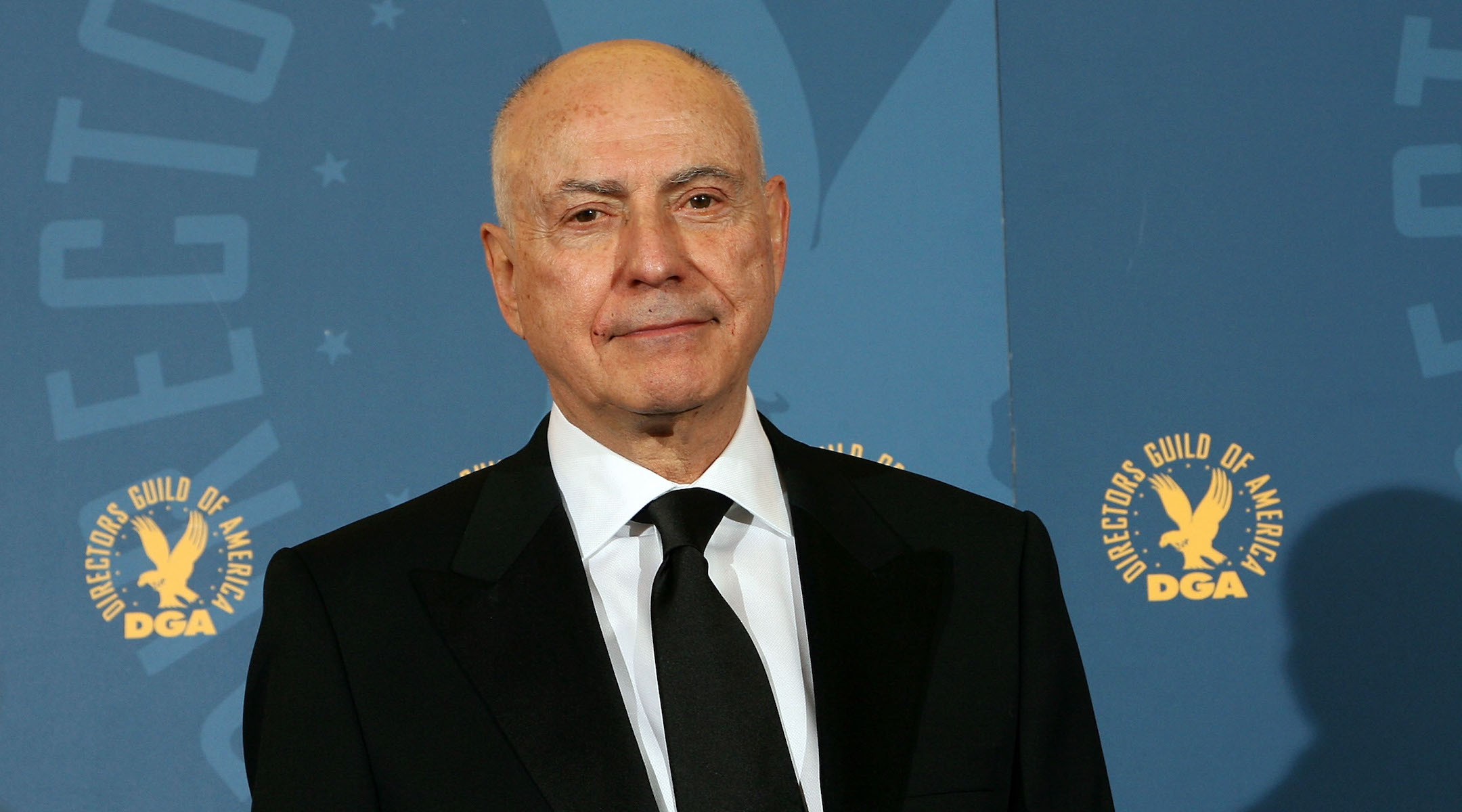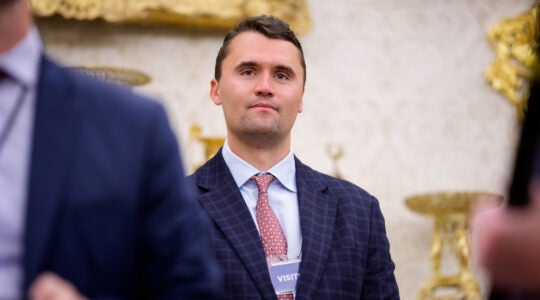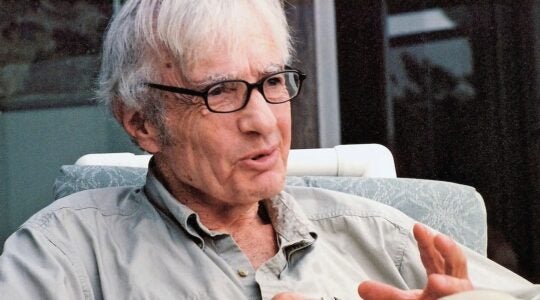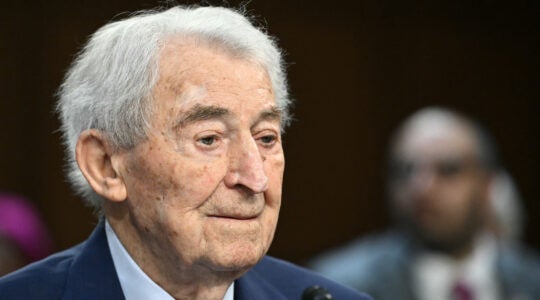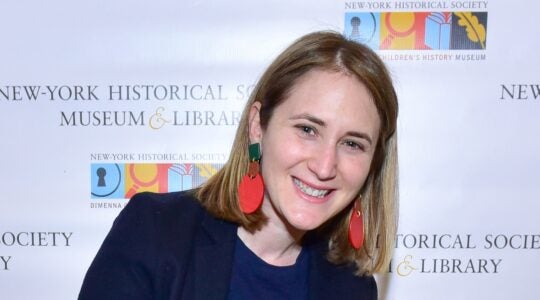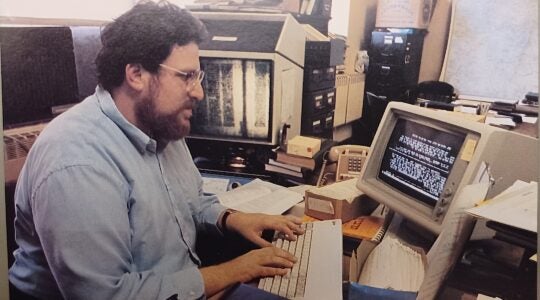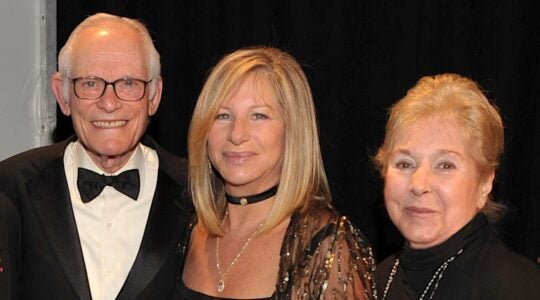(JTA) — Alan Arkin knew he was going to be an actor from the age of five.
“Every film I saw, every play, every piece of music fed an unquenchable need to turn myself into something other than what I was,” he wrote in his 2011 memoir, “An Improvised Life.”
What he was was the son of Ukrainian and German Jewish immigrants in Brooklyn, where he was born in 1934. But over the course of a long and unusually peripatetic career, he managed to turn himself into a conflicted Russian submarine officer (“The Russians Are Coming, the Russians Are Coming,” 1966), a struggling Puerto Rican widower (“Popi,” 1969) and a mild-mannered Manhattan dentist recruited into an unlikely espionage scheme by his daughter’s future father-in-law (“The In-Laws,” 1979).
His versatility was honed by his study of the “Stanislavski” method taught by Benjamin Zemach, an American modern-dance pioneer who specialized in Jewish themes, and his stint as an early member of the Second City improvisational comedy troupe in the 1960s.
“It’s improvisation, and some are terrific, and some are terrible,” he told an interviewer about his days with Second City. “The ability to fail was an extraordinary privilege and gift. … You don’t learn anything without failing.”
Arkin, who became the sixth-oldest winner of the best supporting actor Oscar in 2007 for his part in “Little Miss Sunshine,” died Thursday at his home in San Marcos, Calif. He was 89.
Over a nearly seven-decade career, he imbued comic roles with pathos and serious roles with a touch of sardonic humor. He was working until nearly the end of his life, co-starring with Michael Douglas from 2018 to 2019 in Chuck Lorre’s Netflix comedy series “The Kominsky Method.” That role, as agent Norman Newlander, earned him two consecutive Emmy Award nominations.
His other well-known roles included a paranoid salesman in the film adaptation of David Mamet’s “Glengarry Glen Ross” (1992) and a deaf-mute in the Southern Gothic drama “The Heart Is a Lonely Hunter” (1968). He also played Yossarian, the reluctant airman in “Catch-22,” the 1970 film adaptation of the Joseph Heller novel. Although the character was technically Armenian, most critics agreed that he was a “coded” Jew.
Arkin also voiced J.D. Salinger, or at least a character purporting to be the famously reclusive Jewish writer, in the cult Netflix animated series, “BoJack Horseman.”
He made his directorial debut with the darkly comic “Little Murders” (1971), based on the stage play by Jewish writer and cartoonist Jules Feiffer. In 1975, Arkin directed the Broadway production of Neil Simon’s “The Sunshine Boys,” a comedy about elderly enemies based on the Jewish vaudeville team Smith and Dale.
Arkin was the son of David I. Arkin, a painter and writer, and Beatrice Wortis, a teacher. He wrote that he grew up in a Jewish family with “no emphasis on religion.” The family moved to Los Angeles when Alan was 11; his parents were accused of being communists during the Red Scare” of the 1950s and struggled for work. He attended Los Angeles State College and Bennington College.
Arkin won a Tony for best featured actor in 1963 when he appeared on Broadway in “Enter Laughing,” a comedy based on an autobiographical novel by the Jewish comedian, writer and director Carl Reiner.
Arkin made his film debut — and received his first Academy Award nomination — opposite Reiner in “The Russians Are Coming, the Russians Are Coming,” about a Soviet sub that runs aground off New England. The phrase he teaches his comrades — “Emergency! Everybody to get from street!” — became a catchphrase.
Thirteen years later, “The In-Laws” would spawn another catchphrase, after Arkin and his co-star Peter Falk avoid a hail of bullets by running zig-zag and yelling “Serpentine!”
In 1987, he starred in the television film “Escape from Sobibor,” portraying Leon Felhendler, a Polish-Jewish resistance fighter who organized the 1943 prisoner uprising at the Sobibor extermination camp. The role earned Arkin nominations for an Emmy Award and a Golden Globe award for best supporting actor.
In “Little Miss Sunshine” (2006) he played the cranky, vulgar grandfather to a little girl who dreams, improbably, of winning a beauty pageant. Arkin’s character spends hours working on her dance routine with her in the independent comedy, which was a surprise hit.
On receiving his Academy Award for the role in 2007, Arkin said: “More than anything, I’m deeply moved by the open-hearted appreciation our small film has received, which in these fragmented times speaks so openly of the possibility of innocence, growth and connection.”
Arkin was also an accomplished folk singer, forming a group, The Tarriers, that had a modest 1956 hit with a version of “The Banana Boat Song,” a traditional Jamaican calypso folk song that Harry Belafonte would make more famous.
Arkin was married three times. He had three sons, all actors: Adam Arkin, Matthew Arkin and Anthony (Tony) Dana Arkin.
JTA has documented Jewish history in real-time for over a century. Keep our journalism strong by joining us in supporting independent, award-winning reporting.
